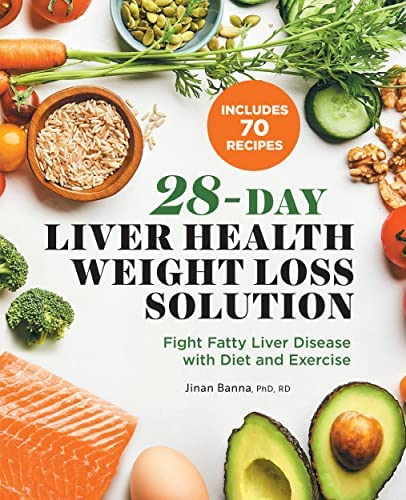
Good nutrition is essential for good health. Research shows that babies with better nutrition can grow stronger and have a stronger immune system. It also helps people stay healthier during pregnancy and reduces the risk of non-communicable diseases. A balanced diet is more productive and breaks the cycle between hunger and poverty. Malnutrition poses a grave threat to human health. In low-income countries, the burden of malnutrition includes both overweight and undernutrition.
Nutrition is the process by which living organisms assimilate food. This allows living organisms to sustain themselves and reproduce. Many nutrients are important in food. Proper nutrition can help you choose foods that are better for your body. This can help you to understand the health benefits of choosing the right foods. You can make healthier food choices by understanding these components. Listed below are some of the most important nutrients in human nutrition.

What is nutrition, exactly? Nutrition refers to the study of nutrients in food and how they are used by our bodies. The scientific principles of nutrition are derived from molecular biology, biochemistry, genetics, and food metabolism. Nutrition scientists are primarily concerned with improving health and reducing the risk for chronic disease and allergies. Research has focused on nutrients and how they affect the human body in order to help people live healthier lives and lower their risk of developing certain conditions.
There are many types of nutrition, including the types of foods, the types of food we eat, and the composition of each. But there are three key parts to the nutrition process. First, food must be consumed. The food is then broken down into nutrients, which travel through the bloodstream and to different parts in the body. Once nutrients have been absorbed, they are used as fuel by the body. For example, nutrients provide the body with essential vitamins and minerals.
It is essential for our health that we eat healthy food. It provides vital nutrients and sustains our bodies. Healthy eating habits can improve your health. What is the ideal diet? It depends on what you eat and how much time you spend eating. You should avoid foods high in sodium if you're overweight.

There are three types basic nutrition. The first is the macronutrients. These nutrients are essential for our health. Simple carbs are sugars, while complex ones are made up of many sugars. They are also great for moving food through your digestive tract. They give you energy, and they are vital for healthy digestion. Micronutrients are another important part of your diet. You should consume a lot of fiber to help keep your digestive system healthy and strong.
FAQ
What is a good daily gym routine?
To stay fit, you need to exercise regularly. It doesn't make a difference what kind of activity you choose. As long as you do it often, it will be beneficial. The key thing is consistency. You must be consistent if you are to see results.
Start by doing small amounts of daily physical activity (like walking). Then gradually increase the time spent exercising until you spend 30 minutes a day working out. You could do this by running, swimming, weight training or yoga.
You should try to ensure that you exercise most days of the week. Don't miss any sessions unless you have an excuse.
Make sure to wear appropriate clothing and footwear for outdoor exercise. You also need to consider the weather conditions and whether they affect your ability to exercise safely.
When you exercise, drink plenty of fluids. Avoid drinking alcohol during this time because it can cause dehydration. Caffeinated beverages such as tea, coffee, and cola should be avoided. They can give you energy, but will also dehydrate.
You might feel tired when you start to exercise for the first time. Keep going with your workouts and you'll soon feel more energized.
What are the best foods to avoid when trying weight loss?
Avoid trans fats. Trans fats increase LDL cholesterol (the bad) and decrease HDL cholesterol (the healthy).
Trans fats may be found in deep-fried, fast food, packaged bake goods, snack cakes, or other processed food.
These unhealthy fats can also lead to inflammation, which can cause heart disease and diabetes.
Avoid eating foods that contain artificial sweeteners. Artificial sweeteners can increase your risk of developing cancer.
These chemicals are found in many products, including soft drinks, candy bars, chewing gum, as well as candy bars. They can also be found in other foods like meat, poultry, and eggs.
Artificial sweeteners include saccharin and sorbitol.
The American Heart Association suggests that you avoid these chemicals as they can cause DNA damage in your cells.
How Metabolic Health is Key to Aging Well
People are living longer lives today than at any point in history. However, people are getting sicker as they live longer. Our current medical science approach is not working, even though we've made many advances.
It's time to change our perceptions of health and aging. Healthy aging is possible only if we look at our metabolic health, not just weight loss, but also overall well-being.
And if you want to live an active life for decades to come, you should ensure that your metabolism stays strong and healthy throughout your entire lifetime.
There are many ways you can improve your metabolic health. You can improve your metabolic health by incorporating these 7 foods in to your diet.
-
Resveratrol has been found to be a key ingredient in blueberries, and it has been shown that it can help increase cell longevity. They also provide antioxidants and vitamins C & E.
-
Pinto beans and lentils are great sources of fiber and plant-based proteins. These nutrients help maintain blood sugar levels so they don’t spike and fall.
-
Broccoli is rich in sulforaphane. Studies have shown that it protects cells from DNA damage. It may even be able to slow down cancer progression.
-
Chia Seeds are high-in omega-3 fatty acids, fiber, and other nutrients. They are also high in antioxidants and proteins. All of these nutrients are good for heart health, brain function, gut health, and overall health.
-
Green Tea is rich in polyphenols known as catechins. Green tea's catechins have been linked with reduced bone fractures as well as cardiovascular disease, cognitive decline, dementia, and increased diabetes risk.
-
Salmonis rich in vitamin D and low in saturatedfat, salmon is one of the best sources for lean protein.
-
Walnuts are high in omega-3s. They also contain antioxidants like alphalipoic Acid (ALA). ALA boosts energy production and reduces inflammation.
Which workout is best for men?
It all depends on your goals. Cardio exercises are great for anyone looking to lose weight.
Strength training, on the other hand, is better if you are looking to increase muscle mass.
Both types have been proven to have benefits for your overall well-being.
I recommend HIIT (or sprint interval training) if you want to be fit quickly. This type is great for burning fat fast by increasing metabolism. It will also help you stay motivated to train even when your body is tired.
How many calories should I eat daily?
This can vary from person to person. On average, you need 2000 to 2500 calories per days. It is important to consider your lifestyle and determine how many calories you'll need.
Statistics
- The PRS enabled risk stratification for overall prostate cancer and lethal disease with a four-fold difference between men in the highest and lowest quartiles (HR, 4.32; 95% confidence interval [CI], 3.16-5.89). (pubmed.ncbi.nlm.nih.gov)
- Candidates and applicants must pass all four tests at 70% (minimum level) to graduate from Basic Deputy U.S. Marshal (BDUSM) Training. (usmarshals.gov)
- An estimated calorie range for moderately active adult males falls between 2,200 to 2,800 calories per day, depending on age. (eatright.org)
- According to the American Academy of Dermatology (AAD), men over 50 are at a heightened risk of developing it. (healthline.com)
- 10 pounds in a month is likely during a lean bulking phase, especially for beginners. (muscleandstrength.com)
External Links
How To
What nutrients do men need each day?
Daily nutrition is essential for men's healthy growth. The body requires vitamins and minerals, protein, carbohydrates, fats (fats), water, fiber, as well other essential elements.
You also need specific nutrients for different times in the day. To give you an example, the body uses energy it receives from food to make hormones and antibodies. You use protein to build muscles and repair damaged tissue when you wake up.
Your body stores extra energy as glycogen and breaks down fat at night. During this time, your body needs fewer calories but still needs sufficient nutrients. If you feel hungry, you may consider having a snack during the evening.
For your body to function properly, it needs adequate amounts of protein and carbs. If you exercise hard, you might feel muscle soreness.
You must ingest carbs and protein within two hours of training to prevent this. To provide energy, your body will begin to break down stored glycogen.
In addition, you must consume protein immediately after completing your workouts. This prevents muscle tissue from being broken down while you are sleeping.
Lactic acid is produced by the body during periods of intense exercise. Your body can build up lactic acid in the bloodstream which causes fatigue. You can avoid this by eating carbohydrates-rich foods like fruits and veggies.
Carbohydrates are a good source of energy to help you recover from hard exercise.
In addition, you may want to include lean meats, fish, eggs, milk, cheese, yogurt, beans, nuts, and seeds into your diet.
These foods all contain high-quality proteins. Protein promotes muscle growth and repairs damaged tissues. Protein provides the amino acid your body needs for testosterone and sexhormone production.
You also need enough dietary fats to maintain good skin, hair, nails, and joints. Healthy men need to consume between 20%-35% of their total calories from fat.
Fat protects your heart from cancer and keeps it strong. It is essential for proper brain function.
You can get the majority of the fats that you need from vegetable oils such as soybean oil.
These oils are rich in monounsaturated essential fatty acids (MUFAs). MUFAs are good for lowering cholesterol and reducing inflammation. They protect your cells from damage by free radicals.
Saturated fats (SFAs), are found mainly in animal products such as meat, milk products, and butter. SFAs are known to raise LDL ("bad") cholesterol and raise triglycerides. They promote weight gain and abdominal fat.
Polyunsaturated fats (PUFAs) are found in plant-based sources like vegetable oils, nuts, seeds, and grains. PUFAs improve cardiovascular function and decrease inflammation. They also reduce blood sugar, cholesterol, and other inflammatory factors.
Men with low HDL ("good") cholesterol often suffer from erectile dysfunction. The consumption of saturated fats raises bad cholesterol which in turn lowers good cholesterol.
Men who eat large quantities of red meats or pork may develop prostate problems. When heated, nitrates are converted to nitrosamines. These compounds can cause lung cancer.
Many processed meats are high in nitrites, and other dangerous chemicals. These chemicals should be avoided.
The American Heart Association recommends eating no more than 2 servings of red meat per week. Choose poultry, fish and legumes instead.